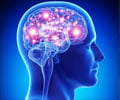Stress has been found to an important precipitant of seizure in patients with epilepsy.
Highlights
- Stress is a subjective and highly individualized state of mental or emotional strain.
- Stress has been found to increase the susceptibility to seizure in epilepsy patients.
- Epilepsy patients who reported stress as a cause for seizure, also reported higher levels of anxiety and depression.
The relationship between stress and seizures has been well documented over the last 50 years.
Stress not only increases the susceptibility of seizure and in rare cases a form of reflex epilepsy, but also increases the risk of the development of epilepsy, especially when stressors are severe, prolonged, or experienced early in life.
"Studies to date have looked at the relationship from many angles," says Michael Privitera, MD, director of the UC Epilepsy Center and professor in the Department of Neurology and Rehabilitation Medicine at the UC College of Medicine. "The earliest studies from the 1980s were primarily diaries of patients who described experiencing more seizures on 'high-stress days' than on 'low-stress days.'"
Researchers including Privitera and Heather McKee, MD, an assistant professor in the Department of Neurology and Rehabilitation Medicine, reviewed 21 studies from the 1980s to present, from patients who kept diaries of stress levels and correlation of seizure frequency, to tracking seizures after major life events, to fMRI studies that looked at responses to stressful verbal/auditory stimuli.
"Stress is a subjective and highly individualized state of mental or emotional strain. Although it's quite clear that stress is an important and common seizure precipitant, it remains difficult to obtain objective conclusions about a direct causal factor for individual epilepsy patients," says McKee.
The review highlights the need for future research to help further clarify biological mechanism behind the association between stress and seizure, and emphasizes the need for larger trials to help develop evidence-based treatment recommendations for epilepsy patients.
Screening and Treating Stress
Patients who believe stress is a seizure trigger should be encouraged to talk to their health care provider about screening for anxiety.
"Any patient reporting stress as a seizure trigger should be screened for a treatable mood disorder, especially considering that mood disorders are so common within this population," adds McKee.
"What I think some of these studies point to is that efforts toward stress reduction techniques, though somewhat inconsistent, have shown promise in reducing seizure frequency. We need future research to establish evidence-based treatments and clarify biological mechanisms of the stress-seizure relationship," says Privitera.
Recommending stress reduction methods to patients with epilepsy could improve overall quality of life and reduce seizure frequency at too little or no risk.
Low risk stress reduction techniques may include:
- controlled deep breathing
- relaxation or mindfulness therapy
- exercise
- establishing routines
The review article is published in the European journal Seizure.
Reference
- Michael Privitera et al. Stress as a seizure precipitant: Identification, associated factors, and treatment options. Seizure; (2017) doi.org/10.1016/j.seizure.2016.12.009
Source-Medindia
















